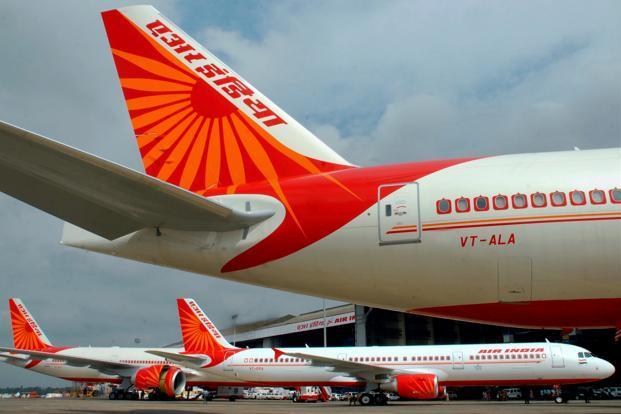Govt Owes Air India over Rs 822 Crore Towards VVIP Charter Flights: RTI

Image for representational use only.Image Courtesy : Livemint
Cash-strapped Air India, which is being disinvested by the government, has outstanding dues of over Rs 822 crore towards VVIP charter flights, according to latest data provided by the national carrier to an RTI response.
In its RTI response provided on Wednesday to Commodore Lokesh Batra (retd), who sought to know the latest data on outstanding bills of Air India, the carrier said as on November 30, 2019, Rs 822 crore were pending towards VVIP charter flights.
The beleaguered airline also said that an additional Rs 9.67 crore towards evacuation operations and Rs 12.65 crore towards ferrying foreign dignitaries were also pending.
Under VVIP charter flights, Air India provides its aircraft to ferry—the president, the vice-president and the prime minister—for which the bills are paid by the ministries.
If outstanding bills of VVIP charter flights were not enough, the carrier had also accrued bills of Rs 526.14 crore towards tickets taken on credit by government officials as on March 31, 2019, according to the reply.
Out of Rs 526.14 crore, Rs 236.16 crore were pending for over three years, Air India said in its response.
The airlines also said that it provisioned Rs 281.82 crore as an accounting charge in its account books for “probable non-recovery”.
Batra had sought “updated (till the date of response), completed and detailed information (including dates and invoices)” on total pending dues towards VVIP charter flights and amounts owed by different public authorities towards Air India among other details.
The information under the RTI Act is defined as any record in any form held by or under the control of public authority which has to be furnished to an applicant within 30 days subject to exemptions under the law.
According to a response provided by the Civil Aviation Ministry on December 5, 2019, a net loss of Rs 8,556.35 crore (provisional) was reported by Air India.
On Wednesday, the ministry said reasons for losses reported by Air India were: high interest burden, increase in competition especially from low cost carriers, adverse impact of exchange rate variation due to weakening of the Indian Rupee, and high operating costs.
Writing on the Maharaja’s financial status among other aspects at the fag end of January for NewsClick, senior journalist Amitabha Roychowdhury noted that the government had decided to reduce the airline’s debt from Rs 60,074 crore to Rs 23,286 crore in order to make the deal more attractive for buyers. Roychowdhury wrote that Air India made losses amounting to Rs 8,556 crore in FY 2019, up from Rs 5,348 in the previous year.
“To attract additional suitors this time, the government has already parked nearly Rs 30,000 crore of debts and liabilities in a special purpose vehicle (SPV). This means that the public exchequer will absorb this cost, instead of the private investor. The new owner of the airline will be left with only Rs 23,286 crore worth of debt, as opposed to the Rs 62,000 crore debt estimated earlier. The debt was taken primarily for aircraft purchases which are currently secured against government guarantees. The guarantees will lapse once the new buyer takes over,” he added.
The dues owed to it by the government as a result of VVIP travel seem minuscule as compared to the debt the airline has accumulated over time.
Get the latest reports & analysis with people's perspective on Protests, movements & deep analytical videos, discussions of the current affairs in your Telegram app. Subscribe to NewsClick's Telegram channel & get Real-Time updates on stories, as they get published on our website.




















